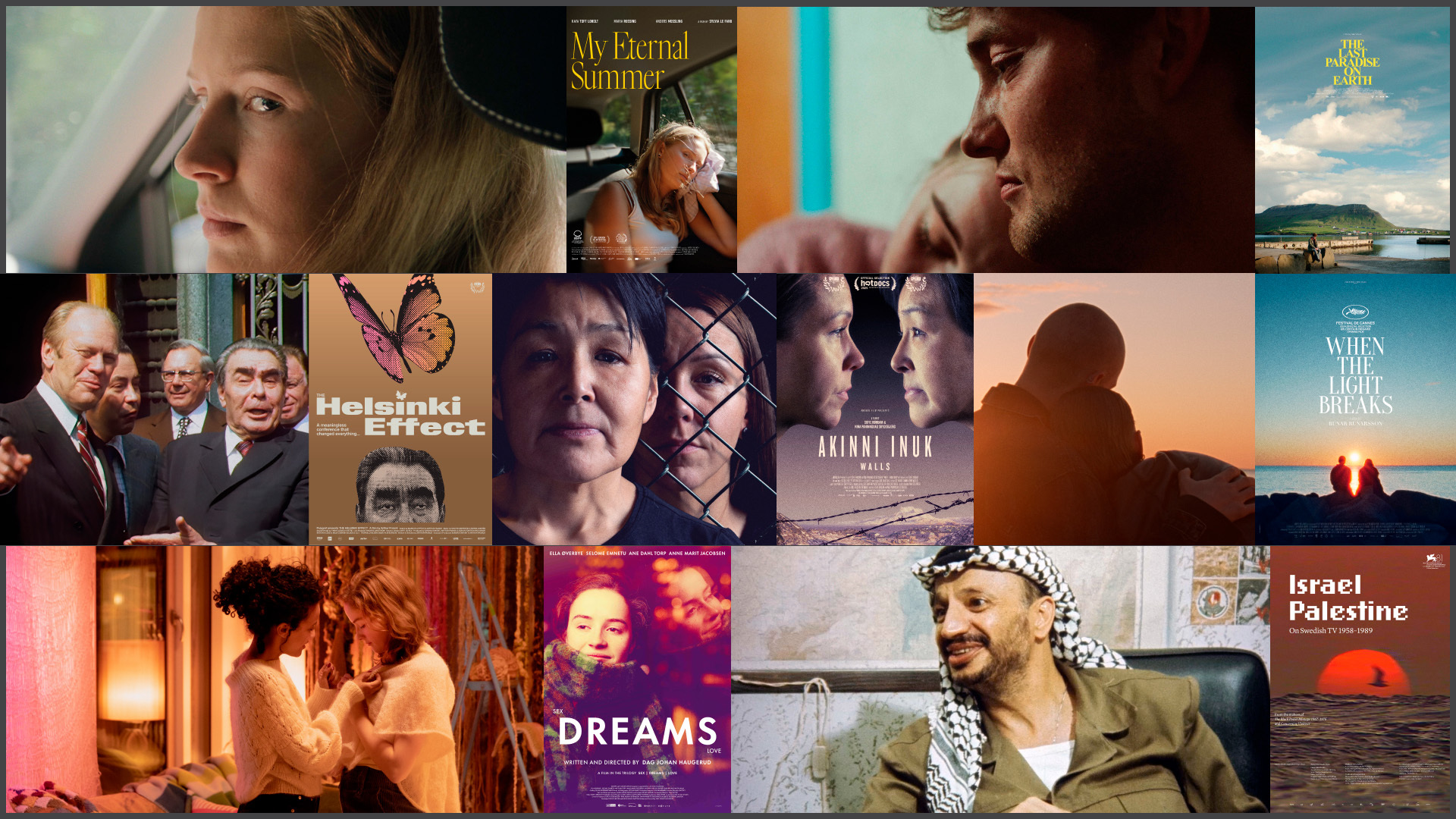
Seven exceptional films nominated for the 2025 Nordic Council Film Prize
First-ever nomination from the Faroe Islands – and a landmark year for Nordic documentaries.
Le Fanu’s debut My Eternal Summer unfolds in the waiting room between life and death, a place she knows and felt compelled to portray.
The Danish writer-director Sylvia Le Fanu, writer Mads Lind Knudsen and producer Jeppe Wowk are nominated by the Danish jury for the Nordic Council Film Prize 2025 for their feature film My Eternal Summer (Min Evige Sommer).
In the film, based on Le Fanu’s personal experiences, 15-year-old Fanny (Kaya Toft Loholt) spends a special summer together with her parents at their country house. Beneath the everyday routines and the quiet simplicity, an unspoken grief lingers – they all know it will be the mother’s last summer. The family tries to seize the days they have left together, while navigating the delicate balance between cherishing the present and facing what’s to come.
Le Fanu graduated from the Norwegian Film School in 2020, and My Eternal Summer is Le Fanu’s debut feature film. Her previous works are the short films Abu Adnan (2017) and Amourteur (2020). My Eternal Summer is produced by Adomeit Film.
In this dialogue series we interview the directors of the seven nominated films. CLICK HERE to see all the nominees.
Sylvia Le Fanu, what was your first impulse to make this film?
Drawing on my personal experience, I wanted to explore how a teenage girl navigates in the complex space of saying goodbye to her dying mother while starting her own life, being in love, and wanting to spend the summer with her friends. How does the family cope in a situation where they are just waiting for the inevitable loss?
My very first short film similarly was about the loss of a mother, and later my graduation film from the film school explored this subject, so it seems something had to get out of my system. So this became my first feature, which we started developing immediately after the film school.
How did you experience moving from the short format to a full-length film?
It was a relief in many ways! I have always struggled with the short format, not being able to unfold what I wanted to say in length and nuance. Some ideas are perfect for the short format, and I seemed never to be able to find them!
How did you write the script, based on your own experiences, with Mads Lind Knudsen?
It has been a very intuitive process, like a long conversation with a friend (which indeed Mads is). We have drawn a lot on my personal memory, investigating each fragment in search of its emotional truth. Then trusting that these fragments would organically find their place in the overall story, and slowly seeing how my private story became a fiction of its own.
How did you create the characters and find the right actors?
The characters are loosely based on myself, my parents and others close to our family. I would inform the actors with as much personal detail as possible, but always reminding them to use it as inspiration, and not as something they had to «live up to». A starting point, not a result. That way, the characters became their own, but with certain resemblances to their origins. Finding the right actors was very much about finding the people I felt would understand the under-played way I wanted the acting style to be like, but of course also about finding certain traits that I felt characterised us.
The film’s atmosphere feels very authentic. What were the key elements in creating it?
Staying true to the emotions of my own experience (albeit not the factual details), and trying to avoid any temptation to over-dramatise. Trusting it would be «enough» to just «be» with the characters in this complex situation.
Which theme(s) became especially important for you during the process?
I never like to think too much about a theme when starting on a project, since it makes me think in clichés. Mads and I always talk about our «method» as bottom up as opposed to top down, meaning we first and foremost look at the characters and the scenes, and only later in the process start to formulate what the film really is about thematically. However, finding the theme was indeed useful for us at a late stage; realising that our film was about anticipatory grief helped the story fall into place, allowing us to simply be in this waiting room with the characters.
How would you describe the current state of the film industry in Denmark?
When I was studying at the Norwegian Film School together with a group of other Danes, we could sometimes find ourselves acting a bit self-assured, coming from the proud Danish Dogme tradition. Ironically, after graduating and returning home, we realised that it was in fact Norway that had taken the lead on the international film scene. Perhaps our strong self-image as the Scandinavian frontrunner has, in some ways, been an Achilles’ heel. Combined with the enormous impact of the so-called “golden age of Danish TV drama” in the 2000s, which placed great emphasis on dialogue-heavy, script-driven storytelling, this has also shaped Danish cinema in ways that have limited its curiosity and formal experimentation. Fortunately, the new generation of filmmakers seems to be moving beyond these limitations, and opening up new directions for Danish film.
Official trailer:
CLICK HERE to read jury's motivation for My Eternal Summer.
All nominated films for the Nordic Council Film Prize 2025 can be watched during the following events:
• 05-07.09 at Bio Skandia by Stockholm International Film Festival.
• 17.09-20.09 during Nuuk International Film Festival.
• 18.09-22.09 at Bíó Paradís in Iceland.
• 19.09-26.09 during Helsinki International Film Festival.
• 02.10-05.10 at Øst for Paradis during Aarhus Film Days.